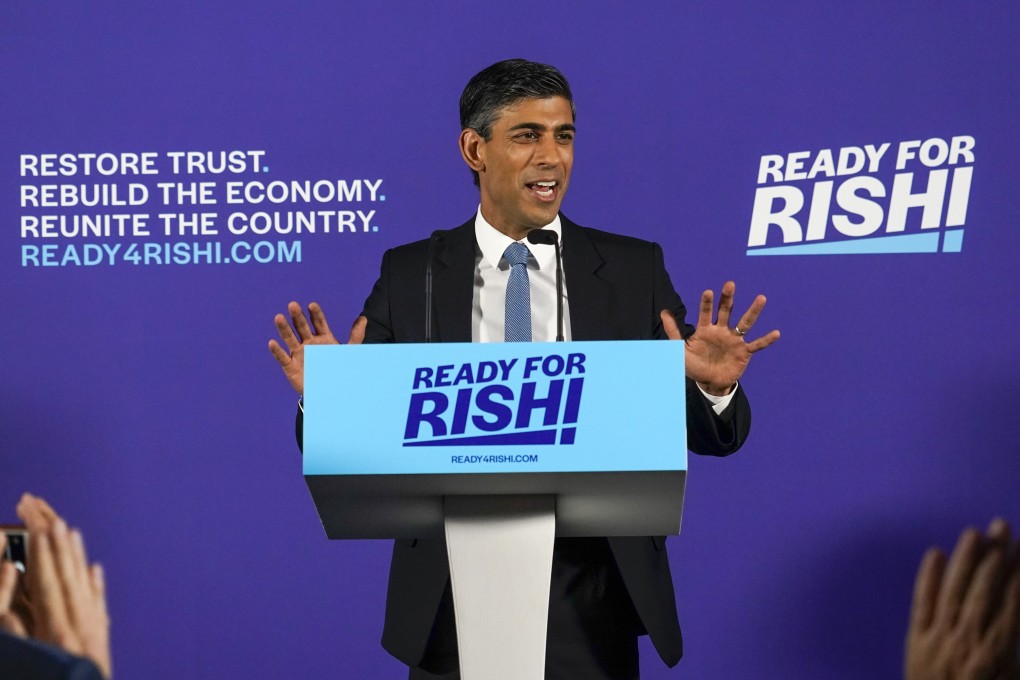‘Ready for Rishi’: Why Indian netizens are glued to UK’s race to replace PM Boris Johnson
- The entry of several South Asian candidates, such as front runner Rishi Sunak, in the UK’s leadership race has given India’s public cause to rejoice
- Some political observers highlighted the benefits of a non-white leader while others questioned the UK’s readiness for a person of colour

Javid and Braverman have dropped out of the race, while Sunak has the most publicly-declared support from Tory MPs and is tipped to win. Further rounds of voting are expected next week following television debates scheduled for the weekend.
While most of the Indian community celebrated Sunak’s lead in the race to replace outgoing Prime Minister Johnson, some have tried to temper expectations, saying that a Sunak win might not necessarily translate to benefits for India. Other political observers also questioned the readiness of the UK for a “non-white” leader.
“The rise of South Asian candidates in British politics is fascinating and reflects a tectonic shift in the country’s political history. Be that as it may, I don’t think Britain is ready for a brown PM yet, be it Sunak or anyone else,” said Manoj Joshi, a Delhi-based columnist and political commentator.
“Racism is still rampant and entrenched in the island nation. And it’s unlikely that the British masses will accept a non-white PM,” he said.